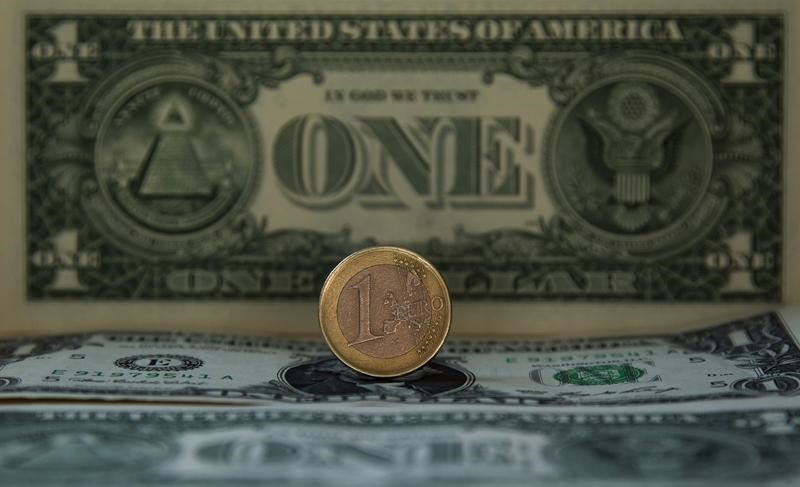Investing.com’s stocks of the week
Investing.com -- The dollar was lower against the yen and euro early Friday in Europe but higher against risk proxies such as the Aussie dollar as traders shunned risk ahead of a weekend set to be marked by geopolitical tensions.
At 3:40 AM ET (0740 GMT), the dollar index, which measures the greenback against a basket of six major currencies, was effectively flat at 96.995, but that masked varying performances against the basket's individual constituents.
Against the yen, the dollar was down 0.2% at 108.20 and closing in on a new 14-month low, while the euro also edged higher against the buck to $1.1281.
The Chinese yuan weakened further in the Asian session, a drop later validated by a disappointing data for industrial production and fixed asset investment in May. At only 5.0%, industrial production grew at its slowest rate since 2002.
China also announced its latest countermeasures in its widening dispute with the U.S., raising import tariffs on certain steel pipes from the U.S. and EU by a factor of 10.
In the U.S., a letter signed by hundreds of companies including Walmart (NYSE:WMT) and Target (NYSE:TGT) urged President Donald Trump not to go ahead with his plan to impose tariffs on another $325 billion of Chinese imports, saying they would hit American businesses, farmers and families.
The administration had late on Thursday said it would waive tariffs on bifacial solar panels from Asia, a token de-escalation of tensions given that such panels only account for 3% of the U.S. market, according to Deutsche Bank (DE:DBKGn) strategist UIrich Stephan.
The dollar may see some movement later in the day after a big dump of U.S. data, which includes May retail sales at 8:30 AM ET, May industrial production at 9:15 AM ET and the University of Michigan consumer sentiment index at 10 AM ET.
The British pound remains under pressure after the first round of the Conservative Party leadership contest left Boris Johnson as the clear favorite. The pound was 0.1% lower against both the dollar and euro, ahead of a speech later by Bank of England Governor Mark Carney.
